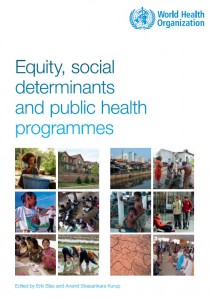Not got much time but I don’t want to lose this one…
The Journal of Public Health Policy have just published a ‘Special Section’ on “What is health?” with the editors intro entitled “What do we mean when we use the word health?”
The special section centres on an open access article by Bircher and Kuruvilla (2014) introducing the Meikirch Model of Health. The model offers up a particular definition of health:
Health is a state of wellbeing emergent from conducive interactions between individuals’ potentials, life’s demands, and social and environmental determinants
This definition:
- resonates with me – ’emergent from conducive interactions’ reminds me of my own post from ages ago now on A systems perspective on health and wellbeing which talks about interactions and emergence.
- throws up intrigue – ‘is a state of wellbeing’ connects me to my recent post on Conceptions of wellbeing – if health is ‘a’ state of wellbeing what other states of wellbeing are there? or is health the only state of wellbeing? It strikes me that you could swap the words ‘health’ and ‘wellbeing’ over ‘Wellbeing is a state of health…’ and still get people nodding their heads wisely.
- and questions – the abstract also mentions lifecourse approach – so is it a ‘state’ or ‘dynamic’?
Overall I quite like it.
Unfortunately the commentary offered by other authors in the Special Issue aren’t open access and Lancs Library isn’t a subscriber. Trying to source.


